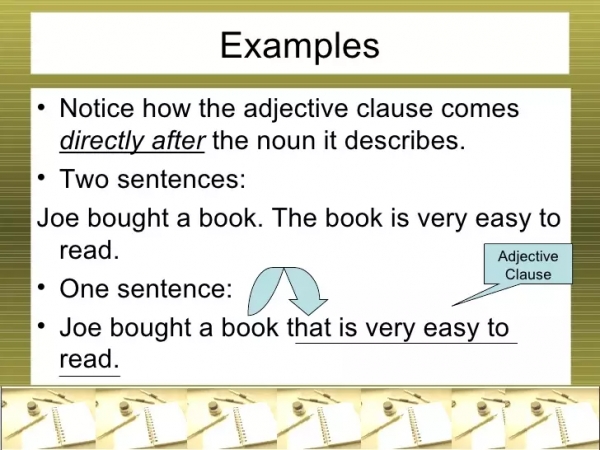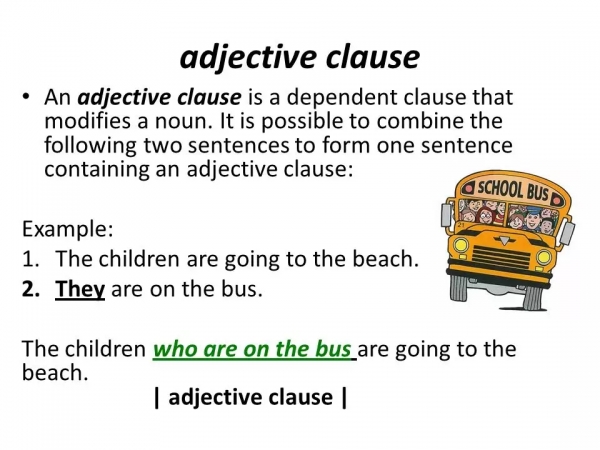
 Data Structure
Data Structure Networking
Networking RDBMS
RDBMS Operating System
Operating System Java
Java MS Excel
MS Excel iOS
iOS HTML
HTML CSS
CSS Android
Android Python
Python C Programming
C Programming C++
C++ C#
C# MongoDB
MongoDB MySQL
MySQL Javascript
Javascript PHP
PHP
- Selected Reading
- UPSC IAS Exams Notes
- Developer's Best Practices
- Questions and Answers
- Effective Resume Writing
- HR Interview Questions
- Computer Glossary
- Who is Who
What is an adjective clause in English grammar?
An adjective clause is a clause which performs the function of an adjective in a sentence. The adjective is a word which modifies a noun or pronoun in a sentence. For example, a tall man, (where tall is an adjective) etc.

The adjective clause may be introduced by a relative pronoun (whom, which, that, who etc) or relative adverb (where, when, after, before etc).
Examples of the Adjective Clause
Ram, who is the monitor of our class, is intelligent.
She is the neighbor, whose dog is Ill-behaved.
Give me a reason why should I believe you.
Here, 'who is the monitor of the class' in the first example,
'Whose dog is ill-behaved' in the second example and 'why should I believe you' are illustrations of adjective clauses.
The reason is that in the first example, Ram is a noun and the clause explains the noun. In the second example, 'neighbor' is a common noun and the clause explains it. In the third example, 'reason' is again a common noun and the best part of the sentence explains it.

NOTE: Adjective clause is a kind of subordinate clause, which may also be called a relative clause.

